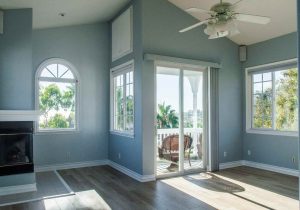
In the realm of interior design, Vastu Shastra, an ancient Indian architectural science, has gained significant attention for its principles aimed at creating harmonious living spaces. One of the key considerations in Vastu is the placement and number of windows and doors within a house. In this blog post, we’ll explore the ideal number of windows as per Vastu and delve into the question of whether having 11 doors aligns with Vastu principles.
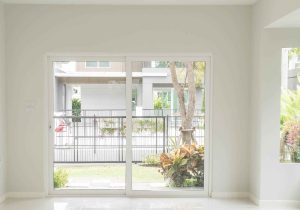
Windows play a crucial role in Vastu, as they are believed to be channels for energy and natural light. According to Vastu, a well-designed home should have a balance of windows on all sides to allow ample sunlight to enter. The number of windows should be proportional to the size and purpose of each room, creating a positive and vibrant atmosphere.
Vastu recommends larger windows in the east and north directions to harness the positive energy of the rising sun and the constant flow of the north breeze. Smaller windows in the west and south directions help control the entry of harsh afternoon sunlight. Additionally, Vastu suggests avoiding windows directly opposite to doors, as it may lead to the loss of energy.
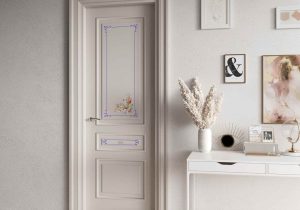
When considering window designs, it’s essential to choose shapes and styles that resonate with Vastu principles. Circular and semi-circular windows are often recommended, as they symbolise continuity and unity. Additionally, ensuring that windows are well-maintained, clutter-free, and strategically placed enhances the flow of positive energy within the home.
Now, let’s shift our focus to an intriguing question regarding the number of doors in a house according to Vastu.
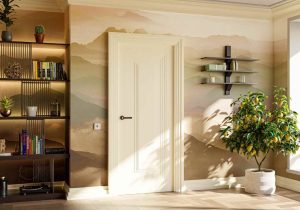
The notion of having 11 doors in a house might sound peculiar to many. While Vastu emphasises the importance of doors and their placement, there is no strict mandate regarding a specific number. Instead, Vastu emphasises the need for a balanced and harmonious arrangement of doors to facilitate the smooth flow of energy throughout the house.
While Vastu offers guidance on creating a positive and harmonious living space, the idea of having precisely 11 doors in a house might stem from a misinterpretation or an exaggerated belief. Vastu Shastra encourages a thoughtful and balanced approach to door placement, focusing on creating an environment that promotes well-being and positive energy.
Vastu emphasises the importance of energy flow within a home. Having too few doors can lead to stagnation, while an excessive number may disrupt the equilibrium. The key is to strike a balance that ensures a smooth movement of energy throughout the house. Adequate doors in strategic locations can facilitate this flow, preventing energy from becoming stagnant or overly chaotic.
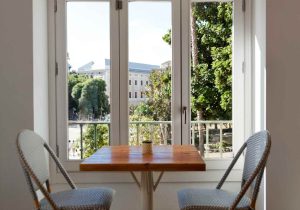
Instead of fixating on a specific number of doors, Vastu takes into account the purpose and nature of each room. For example, the entrance door is of paramount importance, symbolising the gateway for positive energy. Bedroom doors should be placed in a manner that fosters tranquility, while kitchen doors are recommended in the southeast to harness the element of fire. Tailoring door placement to the unique characteristics of each room is a key aspect of Vastu design.
Vastu advocates aligning doors with specific directions to harness the energies associated with them. For instance, the main entrance door facing east attracts the positive energy of the rising sun, while a south-facing door may be avoided as it is considered less auspicious. By aligning doors with the cardinal directions, Vastu aims to enhance the overall positive energy within the house.
The quality of doors holds significance in Vastu. Sturdy, well-maintained doors contribute to a sense of security and stability, reinforcing the positive energy within the home. Instead of fixating on a specific count, Vastu encourages homeowners to prioritise the quality of doors and their alignment with the overall design principles.

Understanding the nuances of Vastu Shastra can be complex, and interpretations may vary. Consulting with Vastu professionals or experts in interior design, such as Bonito Designs, can provide tailored advice based on individual circumstances. These professionals can offer insights into creating a Vastu-compliant home that aligns with personal preferences and lifestyle.
It is crucial to understand that the number of doors should align with the size and purpose of each room. Ideally, doors should be positioned in a way that allows a free and unobstructed movement of energy, preventing stagnation and promoting a positive living environment.
In the realm of interior design, incorporating Vastu principles can contribute to a more balanced and harmonious living space. When it comes to windows, their number and placement should consider the cardinal directions. Maximising the positive influences of sunlight and natural ventilation. As for doors, while there is no strict rule regarding the number 11. It is essential to focus on creating a well-balanced arrangement that facilitates the free flow of energy within the house.
Remember, achieving Vastu harmony involves a holistic approach to home design. Consulting with professionals in interior design, such as Bonito Designs, can provide valuable insights and expertise in creating a home that not only adheres to Vastu principles but also reflects your personal style and preferences.